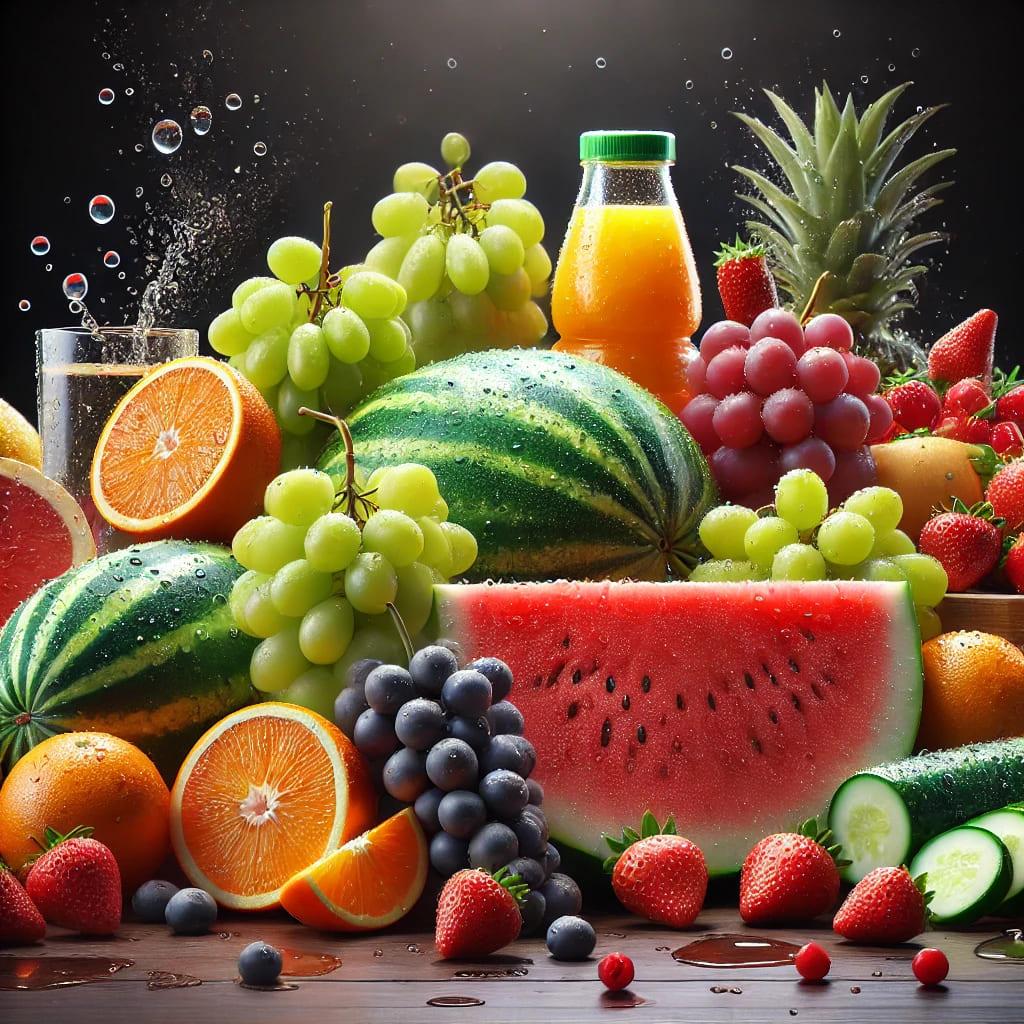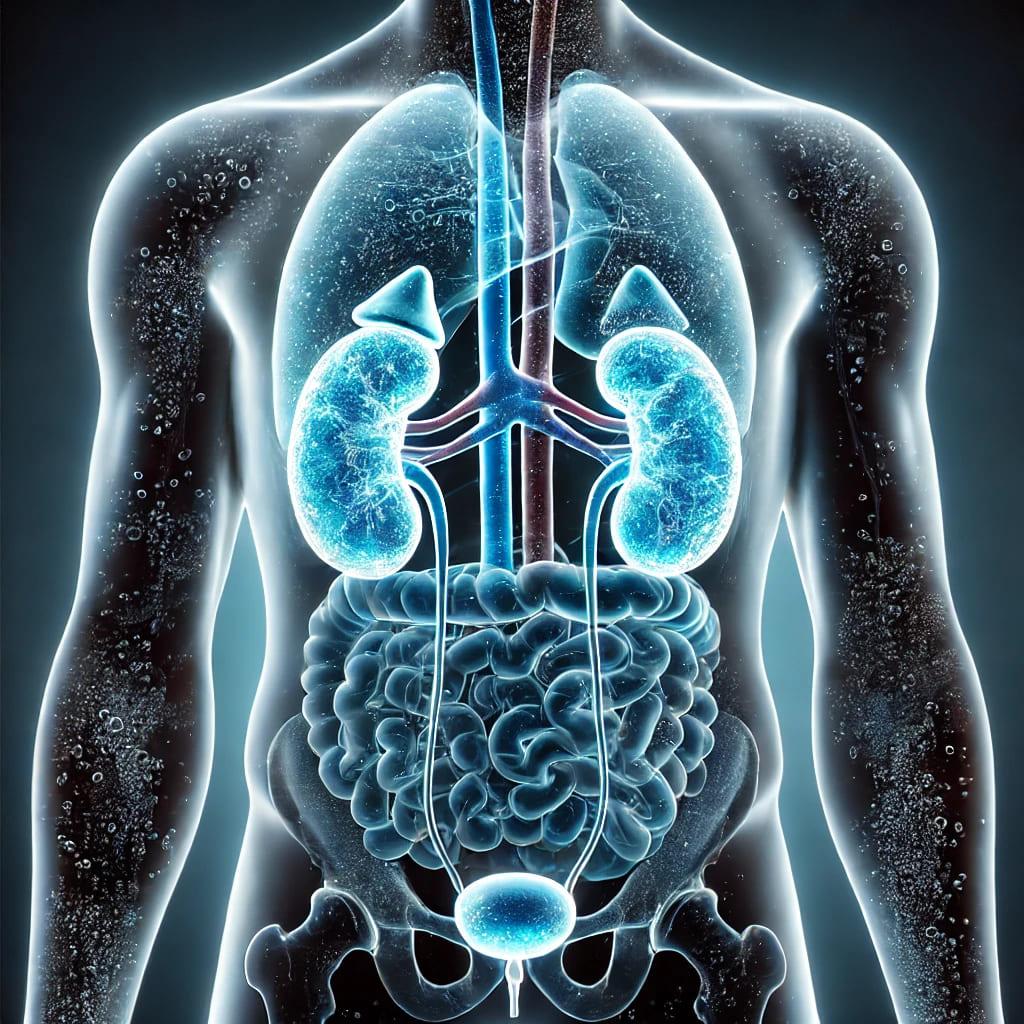Introduction
Staying hydrated is crucial for overall health, but its importance skyrockets when using drugs, whether they are prescription medications, over-the-counter remedies, or recreational substances. This guide delves into why hydration matters so much in these contexts and provides practical tips for maintaining optimal fluid levels. While hydration might seem like a straightforward topic, its interplay with drug use can have profound effects on your body and mind. Let’s explore this vital subject to ensure you stay safe and healthy.
Why Hydration is Crucial
The Role of Water in the Body
Water is essential for virtually every function in the human body. It aids in digestion, nutrient absorption, and temperature regulation. Water also helps in waste elimination through urine, sweat, and bowel movements. Given that the human body is about 60% water, maintaining this balance is critical for survival and overall well-being.
Impact of Dehydration
Dehydration can have severe consequences, including headaches, dizziness, fatigue, and impaired cognitive function. In extreme cases, it can lead to heatstroke, kidney stones, and even death. When drugs enter the mix, these risks can be amplified. Drugs can affect hydration status by increasing urine output, sweating, or altering electrolyte balance, making it even more important to monitor fluid intake.
How Drugs Affect Hydration
Prescription Medications
Many prescription medications can alter your body’s hydration levels. For example, diuretics, commonly prescribed for high blood pressure, increase urine production, leading to greater fluid loss. Other medications, like laxatives, can cause diarrhea, another source of dehydration. It’s essential to understand how your specific medication impacts your hydration and take steps to counteract these effects.
Over-the-Counter Drugs
Common over-the-counter drugs, such as antihistamines and decongestants, can also affect your hydration status. Antihistamines often cause dry mouth and decreased saliva production, while decongestants can increase sweating. Both can lead to dehydration if fluids are not adequately replenished.
Recreational Drugs
Recreational drug use presents unique hydration challenges. Stimulants like cocaine and MDMA (ecstasy) can significantly increase body temperature and sweat production, leading to rapid fluid loss. Alcohol, a commonly consumed recreational substance, is a potent diuretic that can cause dehydration through increased urine output. Cannabis, although milder in its effects on hydration, can still cause dry mouth.
Signs of Dehydration
Recognizing the signs of dehydration is the first step in preventing it. Common symptoms include:
- Thirst
- Dry mouth and swollen tongue
- Dark yellow urine
- Fatigue
- Dizziness
- Confusion
- In severe cases, fainting
If you’re using drugs, it’s essential to be extra vigilant for these symptoms, as dehydration can exacerbate the adverse effects of the substance you’re using.
Strategies to Stay Hydrated
Drink Plenty of Water
The most obvious way to stay hydrated is to drink enough water. The standard recommendation is about eight 8-ounce glasses per day, but this can vary based on individual needs, activity level, and climate. When using drugs, you might need more to compensate for increased fluid loss.
Monitor Your Urine
A simple way to gauge your hydration status is to monitor the color of your urine. Light yellow or clear urine typically indicates good hydration, while dark yellow or amber signals dehydration. Regularly checking your urine color can help you stay on top of your hydration needs.
Include Electrolytes
Water alone isn’t always enough, especially if you’re losing a lot of fluids through sweat or urine. Electrolytes like sodium, potassium, and magnesium are crucial for maintaining fluid balance and proper bodily functions. Sports drinks, oral rehydration solutions, or electrolyte tablets can be helpful, especially when engaging in activities that increase fluid loss.
Eat Hydrating Foods
Certain foods can contribute to your overall hydration. Fruits and vegetables like cucumbers, oranges, strawberries, and watermelon have high water content and can help keep you hydrated. Incorporating these into your diet is an easy and tasty way to boost your fluid intake.
Limit Dehydrating Substances
Reducing intake of substances that can cause dehydration is also important. This includes alcohol and caffeine, both of which have diuretic effects. If you do consume these, balance them with plenty of water.
Set Reminders
In the hustle and bustle of daily life, it’s easy to forget to drink water. Setting reminders on your phone or using hydration apps can help you remember to drink regularly throughout the day.

Special Considerations for Specific Drugs
Alcohol
Alcohol is one of the most common recreational substances and a potent diuretic. To mitigate its dehydrating effects, follow these tips:
- Alternate alcoholic drinks with water.
- Drink a glass of water before you start drinking alcohol.
- Avoid drinking alcohol on an empty stomach.
Cannabis
While cannabis doesn’t typically cause severe dehydration, it can lead to dry mouth. Here’s how to manage it:
- Keep water or a hydrating beverage nearby.
- Suck on ice chips or hard candy to stimulate saliva production.
- Avoid caffeinated drinks which can worsen dry mouth.
Stimulants (Cocaine, MDMA, etc.)
Stimulants can significantly increase body temperature and sweat production. To stay hydrated:
- Drink water regularly, even if you don’t feel thirsty.
- Use electrolyte solutions to replenish lost minerals.
- Avoid excessive physical activity that can further increase sweat production.
Opioids
Opioids can cause constipation, which is exacerbated by dehydration. To counteract this:
- Increase fiber intake through fruits, vegetables, and whole grains.
- Drink plenty of water to keep your digestive system functioning smoothly.
- Consider a stool softener if recommended by your healthcare provider.
Managing Hydration in Different Scenarios
At Parties or Social Events
Social events often involve alcohol and other recreational drugs. To stay hydrated:
- Carry a water bottle with you and take frequent sips.
- Choose drinks with lower alcohol content and higher water content, like spritzers.
- Snack on hydrating foods like fruit and vegetables.
During Physical Activity
If you’re engaging in physical activity, especially in hot weather, your hydration needs will increase. Here’s what to do:
- Drink water before, during, and after exercise.
- Use sports drinks to replenish electrolytes if you’re sweating heavily.
- Avoid excessive caffeine before physical activity.
While Traveling
Travel can disrupt your regular hydration routine. To stay hydrated on the go:
- Carry a reusable water bottle and refill it frequently.
- Avoid excessive alcohol and caffeine during travel.
- Eat hydrating snacks like fruit.
The Science Behind Hydration and Drug Metabolism
How Water Affects Drug Absorption and Distribution
Water plays a vital role in the absorption and distribution of drugs in the body. Adequate hydration ensures that drugs are absorbed efficiently and reach their intended targets in the body. Dehydration can slow down this process, leading to delayed effects or reduced efficacy of the drug.
The Role of Kidneys and Liver
The kidneys and liver are crucial for metabolizing and eliminating drugs from the body. Both organs require sufficient water to function properly. Dehydration can impair kidney function, leading to the accumulation of drugs in the body and potentially causing toxicity. Similarly, the liver needs water to produce bile, which helps in drug metabolism.
Electrolyte Balance and Drug Interactions
Electrolytes like sodium and potassium are essential for nerve function and muscle contractions. Imbalances in electrolytes, often caused by dehydration, can affect how drugs interact with the body. For example, certain medications for heart conditions can become more potent or less effective if electrolyte levels are not within the normal range.
Practical Tips for Different Age Groups
Children and Adolescents
Children and adolescents are particularly susceptible to dehydration, especially when using medications for conditions like ADHD or allergies. Here’s how to ensure they stay hydrated:
- Encourage regular water breaks throughout the day.
- Provide hydrating snacks like fruit and yogurt.
- Monitor their urine color and overall fluid intake.
Adults
For adults, especially those on multiple medications, staying hydrated is crucial:
- Keep a water bottle at your desk or in your car.
- Drink a glass of water with each meal and snack.
- Be mindful of the diuretic effects of caffeine and alcohol.
Seniors
Seniors are at a higher risk of dehydration due to decreased thirst sensation and potential kidney issues. To help them stay hydrated:
- Offer fluids frequently, even if they don’t feel thirsty.
- Include hydrating foods in their diet.
- Monitor their fluid intake and urine output.
Hydration and Mental Health
The Connection Between Dehydration and Mood
Dehydration can significantly impact mental health, leading to symptoms like anxiety, irritability, and depression. When using drugs that affect the central nervous system, maintaining hydration becomes even more critical to avoid exacerbating these symptoms.
Cognitive Function and Focus
Hydration is essential for maintaining cognitive function and focus. Dehydration can impair memory, attention, and decision-making abilities. For individuals using drugs that affect cognition, such as ADHD medications or recreational substances, staying hydrated can help mitigate some of the cognitive side effects.
Conclusion
Staying hydrated is essential for everyone, but it becomes even more critical when using drugs. Whether you’re taking prescription medications, over-the-counter remedies, or recreational substances, maintaining proper hydration can help ensure that these drugs work effectively and safely. By understanding how different drugs affect your hydration status and implementing strategies to stay hydrated, you can protect your health and well-being.
Remember to drink plenty of water, monitor your urine color, include electrolytes in your diet, and be mindful of the signs of dehydration. With these practices, you can enjoy the benefits of your medications and substances while minimizing the risks associated with dehydration. Stay safe, stay hydrated, and take care of your body.



Simply wanna state that this is extremely helpful, Thanks for taking your time to write this.
Thank you! I really appreciate your kind words. It means a lot to know that the content is helpful. Thanks for reading!
I genuinely enjoy looking through on this website , it holds excellent content. “Wealth and children are the adornment of life.” by Koran.
Thank you! I’m really glad you enjoy the content here. That’s a beautiful quote—such a meaningful perspective on life. Appreciate you taking the time to share it!
I have recently started a website, the info you provide on this web site has helped me tremendously. Thank you for all of your time & work.
You’re very welcome! I’m so glad to hear that the information has been helpful to you and your new website. Wishing you continued success with your online venture—keep up the great work! If you have any more questions or need further assistance, feel free to reach out. 😊